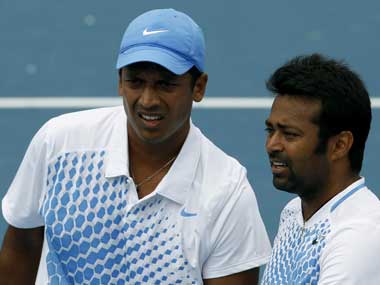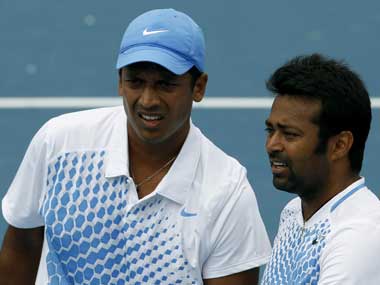So how many Indians does it take to change a light bulb? Answer: Approximately 25. 1 to check whether the light bulb is actually broken. 1 to get a chair to stand on. 2 to fix the chair that is broken. 1 to hold the chair. 2 to go buy the new light bulb, including one to drive the rickshaw and one to go into the shop. 7 needed to sell the light bulb, including fetching from the back, taking the money, writing the receipt, opening the door, checking your bags for weapons (or something) and a couple to hover around and look busy. 1 to note that the power has gone out… AGAIN! 5 to go find a generator, get more fuel, fix it if broken, turn it on and tell the others when power is on. 1 to get a candle while the power is out. 1 to get matches to light the candle. 1 to actually light the candle. 1 to give all orders for the above. And 1 to change the bloody light bulb! It’s an old joke. We’ve all heard it before but it’s as close as anyone can get to describing the merry-go-round that is Indian sport. On the face of it, picking India’s doubles entry for the Olympics should have been easy. Unlike other sports where India often struggles to make up the numbers, in doubles, India have three players ranked in the top 15 in the world – a real luxury. [caption id=“attachment_349660” align=“alignleft” width=“380” caption=“Paes, Bhupathi and the merry-go-round that is Indian sport. Reuters”]
 [/caption] A problem of plenty is often described as a good problem but try telling that to the AITA’s selection committee which comprises of Jaideep Mukherjea, SP Misra, Rohit Rajpal, Zeeshan Ali and Sai Jayalakshmi along with two government nominees. The AITA has been unable to take a clear decision on the matter. Mahesh Bhupathi’s refusal to play with Leander Paes took them by ‘surprise’ but given that the two were not on talking terms, this should have been expected. Rohan Bopanna’s refusal to partner Paes should also have been expected. Bopanna has been playing with Bhupathi since the start of the year and they have worked towards building a better partnership with the Olympics specifically in mind. So when the AITA were asking him to break that partnership how exactly were they expecting him to react? Anyway, the point we are trying to make is simple: even after the AITA saw that neither Bhupathi nor Bopanna are prepared to play with Paes, why did they try to force the issue? If it will be a ‘waste’ to send Paes to the Olympics with a junior, wouldn’t it be a waste to have him take the court with players who don’t even look him in the eye? And then there is the merry-go-round – AITA announced team, Mahesh criticised them, Bopanna criticised them, AITA said they have to play by the rules, Paes says he will play with Mahesh or Bopanna, Mahesh writes to the Sports Ministry asking them to step in, Sports Ministry writes to AITA asking for explanations, AITA writes back with a list of five options, Sports Minister Ajay Maken says the decision is AITA’s to take. Notice the resemblance to the light bulb joke? Indeed, how many Indians does it take to pick a doubles team? Of course, in between Krishna Bhupathi, father of Mahesh, and Vece Paes, father of Leander, also gave their opinions which mostly included allegations of back-stabbing. They’ve gone on and on and made a mountain out of a mole hill. It’s a shame really. Ideally, the AITA should step up and send Somdev Devvarman, who is fit again, and Yuki Bhambri to the Olympics. Let Paes, Bhupathi and Bopanna know that in their current warring state they are not needed. Paes, 39, and Bhupathi, 38, aren’t children. They’ve been around long enough to know how things work but perhaps this is the first time that the system has managed to get to them. This is the ugly side of Indian sport and sadly, it leaves a sour taste in the mouth.
[/caption] A problem of plenty is often described as a good problem but try telling that to the AITA’s selection committee which comprises of Jaideep Mukherjea, SP Misra, Rohit Rajpal, Zeeshan Ali and Sai Jayalakshmi along with two government nominees. The AITA has been unable to take a clear decision on the matter. Mahesh Bhupathi’s refusal to play with Leander Paes took them by ‘surprise’ but given that the two were not on talking terms, this should have been expected. Rohan Bopanna’s refusal to partner Paes should also have been expected. Bopanna has been playing with Bhupathi since the start of the year and they have worked towards building a better partnership with the Olympics specifically in mind. So when the AITA were asking him to break that partnership how exactly were they expecting him to react? Anyway, the point we are trying to make is simple: even after the AITA saw that neither Bhupathi nor Bopanna are prepared to play with Paes, why did they try to force the issue? If it will be a ‘waste’ to send Paes to the Olympics with a junior, wouldn’t it be a waste to have him take the court with players who don’t even look him in the eye? And then there is the merry-go-round – AITA announced team, Mahesh criticised them, Bopanna criticised them, AITA said they have to play by the rules, Paes says he will play with Mahesh or Bopanna, Mahesh writes to the Sports Ministry asking them to step in, Sports Ministry writes to AITA asking for explanations, AITA writes back with a list of five options, Sports Minister Ajay Maken says the decision is AITA’s to take. Notice the resemblance to the light bulb joke? Indeed, how many Indians does it take to pick a doubles team? Of course, in between Krishna Bhupathi, father of Mahesh, and Vece Paes, father of Leander, also gave their opinions which mostly included allegations of back-stabbing. They’ve gone on and on and made a mountain out of a mole hill. It’s a shame really. Ideally, the AITA should step up and send Somdev Devvarman, who is fit again, and Yuki Bhambri to the Olympics. Let Paes, Bhupathi and Bopanna know that in their current warring state they are not needed. Paes, 39, and Bhupathi, 38, aren’t children. They’ve been around long enough to know how things work but perhaps this is the first time that the system has managed to get to them. This is the ugly side of Indian sport and sadly, it leaves a sour taste in the mouth.
So how many Indians does it take to pick a doubles team?
Ashish Magotra
• June 19, 2012, 18:07:52 IST
Ideally, the AITA should step up and send Somdev Devvarman, who is fit again, and Yuki Bhambri to the Olympics. But do they have the guts to do that?
Advertisement
)
End of Article